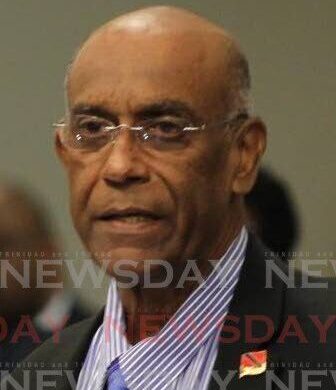The Massy leadership debate

THE EDITOR: I have read and listened with great interest to the Massy leadership training debate which has caused so much debate and controversy, as well as unfortunate negative memes. I believe that there is a great misunderstanding about the direction in which leadership "development” has evolved.
There was a time when in leadership training seminars the course leader would focus on identifying traits/characteristics of successful leaders against which leaders would then assess and rate themselves. This approach has long gone out of the agenda for developing leaders.
Notice that I emphasise the use of the word development, not training. I believe that you can train people to use new skills and technology but you cannot train a leader. You probably think you are training a leader but in reality you are training a person to be a manager.
Leadership development is about answering at least four fundamental questions. Who am I? From where have I come? What is my purpose? Where am I going?
It is difficult to be an effective leader if you do not know yourself. It is difficult to be an effective leader if you lack intimate knowledge of who you are. This knowledge is not about the superficial strengths and weaknesses analyses. It is about spirit/self.
This self-discovery of your deeper nature is not going to take place by traditional methods. It requires a course leader who himself/herself would have made that discovery, lives that truth and is, above all, able to help others make that discovery. Deepak Chopra has preached it. Christ practised it. Krishna taught it to his student Arjuna in the Bhagavad Gita.
An effective leader today is one who inspires others to express their highest potential and creativity in envisioning the future and solving problems. Such an inspiring leader must herself be highly self-conscious, and close the gap between spoken values and lived values. Preaching and practising must become one if leaders are to get the best from people.
The unrealised energy potential of people who we lead (not manage) will not manifest unless leaders are capable themselves of discovering the source of their own energy and potential.
In a nutshell, the actions we perform, the thoughts we have, the decisions we make, our experiences are all a result of what in Vedanta are termed vasanas.
What are vasanas? In this life we have brought over from previous lives unfulfilled desires. When the body dies the memories and desires do not go away. They remain subtly and are brought over into the existing body. Life is seen as a continuum of birth and deaths because of the continuance of these unfulfilled desires. Some may say this is a relevant view if you believe in reincarnation and karma. I subscribe to karma and hence reincarnation.
We are in reality an expression of these unfulfilled desires. They affect our decisions, our actions, our motivations. Understanding these vasanas is important to developing ourselves. You cannot develop or change yourself unless you understand why you are what you are. Behaviour changes are a result of understanding what is prompting our present behaviours.
One may argue that if you bring across these unfulfilled desires from a previous life which are seeking expression in this life, then you have no control over your present existence. Wrong! What is known can be controlled and changed.
Here is an experiment. If you pinch yourself you will feel pain. Who is or, better yet, what is feeling the pain. The distinction has to be made between the experience and the experiencer. After the pain is gone the memory of the pain remains. Are you the pain (the experience) or the experiencer? You are the knower not the known. That is soul or spirit or what we term
atma in Vedanta. This is where leadership development has progressed. It is neither hocus pocus nor obeah nor anything sinister. It is about spirituality and spiritual enlightenment and evolution. And some of the most powerful leaders of cutting-edge organisations that are leading the future have made the discovery of self.
As a former leadership development consultant and lecturer I used these techniques and saw the results. As a course leader I kept in mind and tried to discover my own truths so that I could have been more successful in my leadership programmes.
A lack of knowledge is creating much ado about nothing.
SURUJRATTAN RAMBACHAN
via e-mail

Comments
"The Massy leadership debate"